Stop Explaining, Start Packing
Roland Burris, the woefully forgetful Illinois senator, should go home and stay there, and I'd advise taking a vow of silence as well.This may be stating the obvious, but Roland Burris needs to stop explaining and start packing. The woefully forgetful Illinois senator should go home and stay there, and I’d advise taking a vow of silence as well.
He probably won’t, unfortunately — not of his own volition, at least. In the tradition of the man who appointed him to fill Barack Obama’s vacated Senate seat, scandal-plagued Gov. Rod Blagojevich, Burris seems determined to tough it out. Someone should remind him that this strategy didn’t work out terribly well for Blagojevich, except to show television executives his tremendous potential as a talk-show host — assuming the former governor doesn’t make a forced detour to federal prison.
Burris is probably in no great legal danger. Unlike Blagojevich, he has an admirable, decades-long history as a public servant and an African-American pioneer. He has already tarnished that legacy and is well on his way toward obliterating it. When he jumped at the chance to cap his career with two years — maybe more — in the Senate, I doubt he looked forward to being remembered for taking absurd liberties with the truth.
In January, testifying under oath before Illinois state legislators, Burris acknowledged only one conversation with an official in Blagojevich’s office about the possible Senate appointment. He denied having spoken to other members of Blagojevich’s staff and denied having offered the governor anything in return — a key point, given the allegations that got the governor booted from his job.
Blagojevich has been charged in a federal affidavit with, among other alleged offenses, trying to “sell” the Senate seat to the highest bidder in exchange for a future job, campaign contributions or some other consideration. He denied any wrongdoing but was expelled from office by unanimous vote of the Illinois state Senate, as legislators chose to put their faith in lengthy transcripts of conversations involving the governor that were secretly recorded by FBI investigators.
Last weekend, Burris told a different story. He said that he did indeed speak to other Blagojevich aides, and added that one of them — the former governor’s brother, who was also his finance chairman — called Burris three times to ask for his help in fundraising. A few days after that admission, Burris disclosed that he actually made attempts to raise money for Blagojevich, although he was unable to find anyone willing to give.
Burris’ explanation of the discrepancy — how what sounded like an unambiguous “I didn’t” really meant “I did” — strains credulity. It hinges on matters of syntax, and that’s always a bad sign. The intricacies of grammar don’t change the basic equation: Given the allegations against Blagojevich, Burris had an incentive to leave the impression that he’d had only the most minimal, arm’s-length contact with the governor’s office. And that’s the impression he gave.
There’s talk in Illinois of trying to build a perjury case against Burris, but I think his diagramming of sentences is enough to induce reasonable doubt and make a prosecution unlikely. His ability to adequately represent the citizens of Illinois in the U.S. Senate, however, was in question from the beginning. Now we have the answer.
At 71, Burris had tried and failed several times to win high office; he made his first run for the Senate in 1984. It’s understandable that he would leap at the opportunity to fulfill his dream, even if it was being offered by the tainted Blagojevich. Politicians are optimistic by nature. Burris probably told himself that once he became a senator, it wouldn’t matter how he arrived; that voters have short memories; that he could use the final two years of Obama’s term to establish himself, and by then might be in a position to run for a new six-year term of his own. He could just correct the record on the matter of his contacts with Blagojevich — after all, nobody knows whose conversations might be recorded for posterity on those FBI tapes — and then get back to his rejuvenated political career.
It’s an appealing scenario, but things haven’t worked out that way. Burris could have overcome the questions about Blagojevich’s integrity, but not these new questions about his own. Does he want people to see him as grasping and weak? Or as a good man who shows the world, late in life, that he’s strong enough to admit he made a mistake?
Yes, I’m appealing to his vanity. I’m trying to go with what obviously works.
Eugene Robinson’s e-mail address is eugenerobinson(at)washpost.com.
© 2009, Washington Post Writers Group
Your support matters…Independent journalism is under threat and overshadowed by heavily funded mainstream media.
You can help level the playing field. Become a member.
Your tax-deductible contribution keeps us digging beneath the headlines to give you thought-provoking, investigative reporting and analysis that unearths what's really happening- without compromise.
Give today to support our courageous, independent journalists.
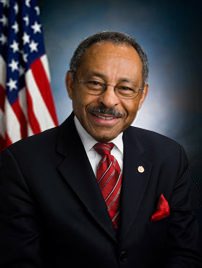
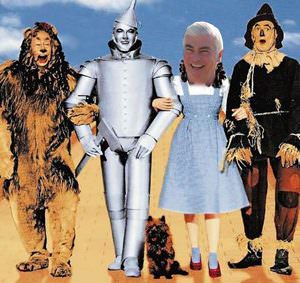
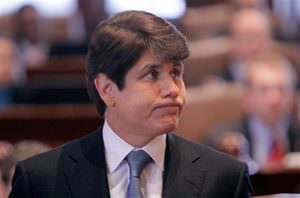
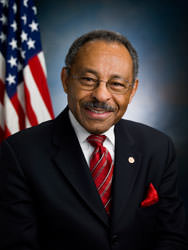
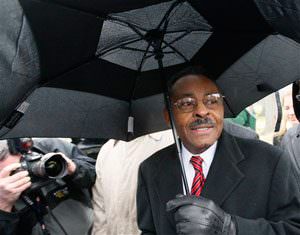



You need to be a supporter to comment.
There are currently no responses to this article.
Be the first to respond.